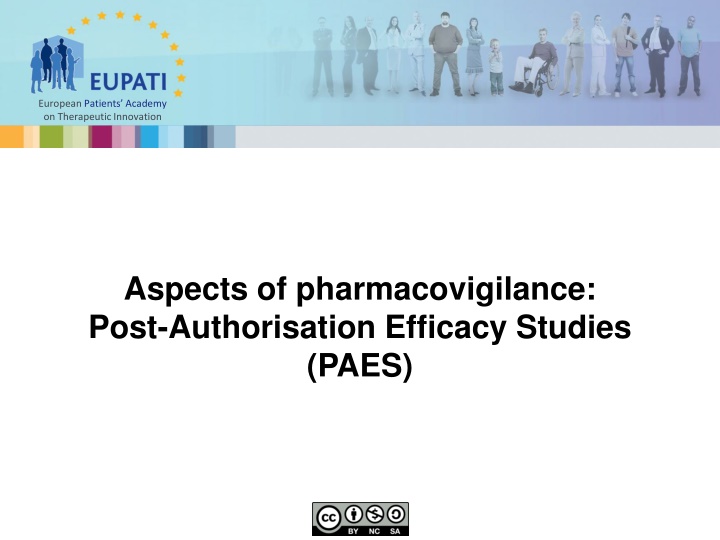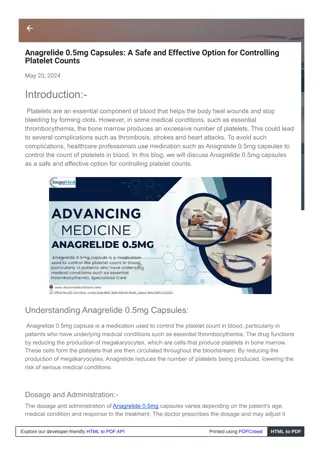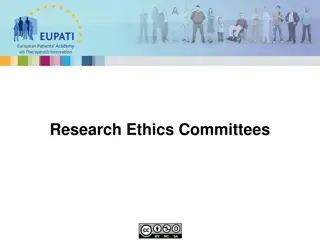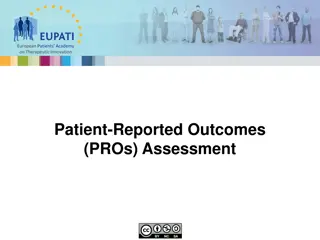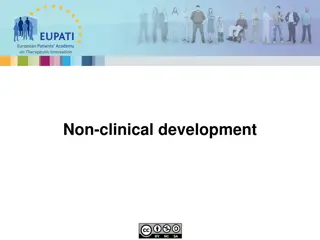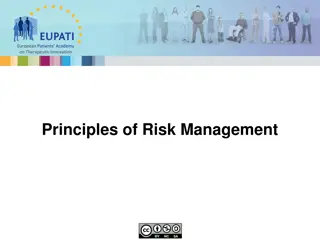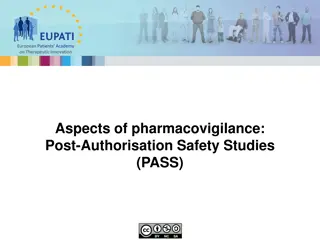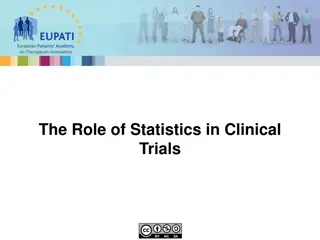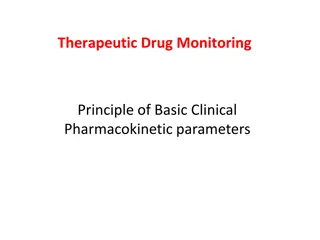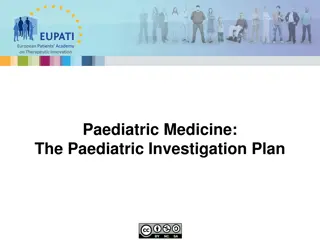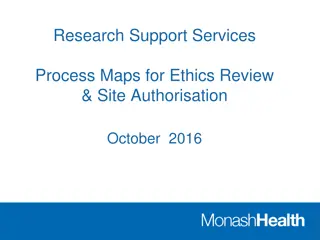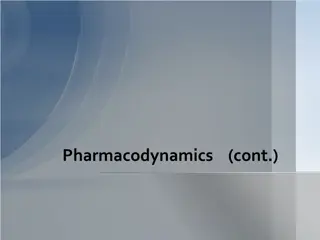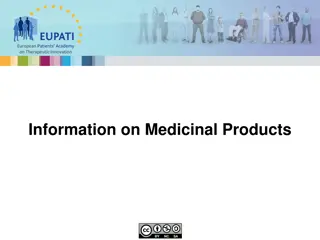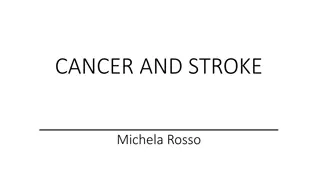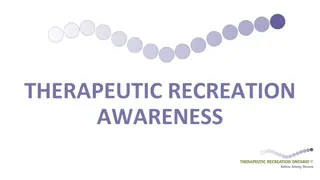European Patients Academy on Therapeutic Innovation: Post-Authorisation Efficacy Studies (PAES)
The European Patients Academy on Therapeutic Innovation focuses on PAES to address important questions about medicine efficacy post-authorization. Regulators may request such studies to resolve concerns and ensure the initial evidence for marketing authorization is upheld. PAES can be triggered by National Competent Authorities, EMA, and the European Commission, governed by EU Regulation No. 357/2014. The studies address initial efficacy assessment, uncertainties in sub-populations, and changes in standard care understanding.
Download Presentation

Please find below an Image/Link to download the presentation.
The content on the website is provided AS IS for your information and personal use only. It may not be sold, licensed, or shared on other websites without obtaining consent from the author.If you encounter any issues during the download, it is possible that the publisher has removed the file from their server.
You are allowed to download the files provided on this website for personal or commercial use, subject to the condition that they are used lawfully. All files are the property of their respective owners.
The content on the website is provided AS IS for your information and personal use only. It may not be sold, licensed, or shared on other websites without obtaining consent from the author.
E N D
Presentation Transcript
European Patients Academy on Therapeutic Innovation Aspects of pharmacovigilance: Post-Authorisation Efficacy Studies (PAES)
Plans for Post-Authorisation Efficacy Studies (PAES) European Patients Academy on Therapeutic Innovation The aim is to enable regulators to request such studies when there are important questions about the efficacy of the medicine that can only be answered once the product is in general use, or when questions arise in the post-authorisation period Dr Stella Blackburn, EMA, 2011 2
Scope of PAESs European Patients Academy on Therapeutic Innovation At the time of granting the marketing authorisation Where concerns relating to some aspects of the efficacy are identified and can be resolved only after the medicine has been marketed After granting the marketing authorisation When the understanding of the disease or the clinical methodology indicate that previous efficacy evaluations might need to be significantly revised PAES should not lead to the premature granting of marketing authorisations. They cannot be used to compromise the initial level of evidence that is required to grant a standard marketing authorisation. 3
Who can trigger a PAES? European Patients Academy on Therapeutic Innovation National Competent Authorities The European Medicines Agency The European Commission PAESs are governed by EU Regulation No 357/2014 as regards situations in which post-authorisation efficacy studies may be required. Available from http://eur-lex.europa.eu/legal- content/EN/TXT/PDF/?uri=OJ:JOL_2014_107_R_0001&from=E N (Last retrieved 29 September, 2015). 4
What points should a PAES address? (1) European Patients Academy on Therapeutic Innovation An initial efficacy assessment based on surrogate endpoints that requires verification In the case of medicinal products used in combination with other medicinal products, there may be a need for further efficacy data to clarify uncertainties Uncertainties with respect to the efficacy of a medicinal product in certain sub-populations that could not be resolved prior to marketing authorisation A change in the understanding of the standard of care for a disease or the pharmacology of a medicinal product 5
What points should a PAES address? (2) European Patients Academy on Therapeutic Innovation The potential lack of efficacy in the long term that raises concerns with respect to the maintenance of a positive benefit-risk balance of the medicinal product. Use of a medicinal product under real-life conditions may significantly affect the benefits the medicinal product demonstrated in clinical trials. In some cases, such as vaccines, protective efficacy studies have not been feasible during clinical trials. New concrete and objective scientific factors that may constitute a basis for finding that previous efficacy evaluations may need to be significantly revised 6
